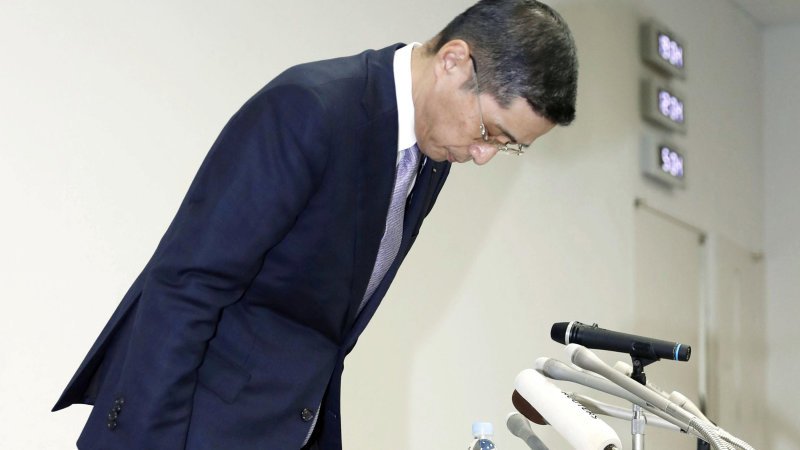Nissan suspending all of its car production in Japan

Japan's second-largest automaker said it would stop production of domestic market vehicles at all six of its Japanese plants to reconfigure their inspection lines.
That came after Nissan admitted uncertified technicians had continued to perform final vehicle checks even after it had said it had strengthened control of its inspection processes when the issue first came to light late last month.
The misconduct has already forced Nissan to recall all 1.2 million new passenger cars sold in Japan over the past three years, and the company said on Thursday that around 34,000 additional cars would be re-inspected, probably expanding the recall by around 4,000 units.
The issue has tarnished Nissan's brand at home, and along with a data falsification scandal at compatriot Kobe Steel, has raised questions about compliance and quality control at Japanese manufacturers.
Japan's transport ministry said this month it had discovered that uncertified technicians at plants producing Nissan vehicles were using the stamps of certified technicians to sign off on final vehicle inspections, in violation of ministry guidelines.
As a result, Nissan has recalled vehicles to re-do final inspections on issues including steering radius and braking and acceleration capabilities, at a cost of around 25 billion yen ($222 million).
While Nissan has said the misconduct has no impact on the quality of its vehicles, it has raised questions about how closely rules are followed at its production plants, while also dealing a blow to its reputation at home.
Nissan will continue to produce vehicles for export in Japan, including its popular Rogue SUV crossover model and the battery-electric Leaf, as the certification process for final inspections does not apply to vehicles shipped overseas.
Kobe Steel, Japan's third-biggest steelmaker, admitted this month it had falsified specifications on the strength and durability of aluminum, copper and steel products, misconduct that may have stretched back more than 10 years.
Related News


